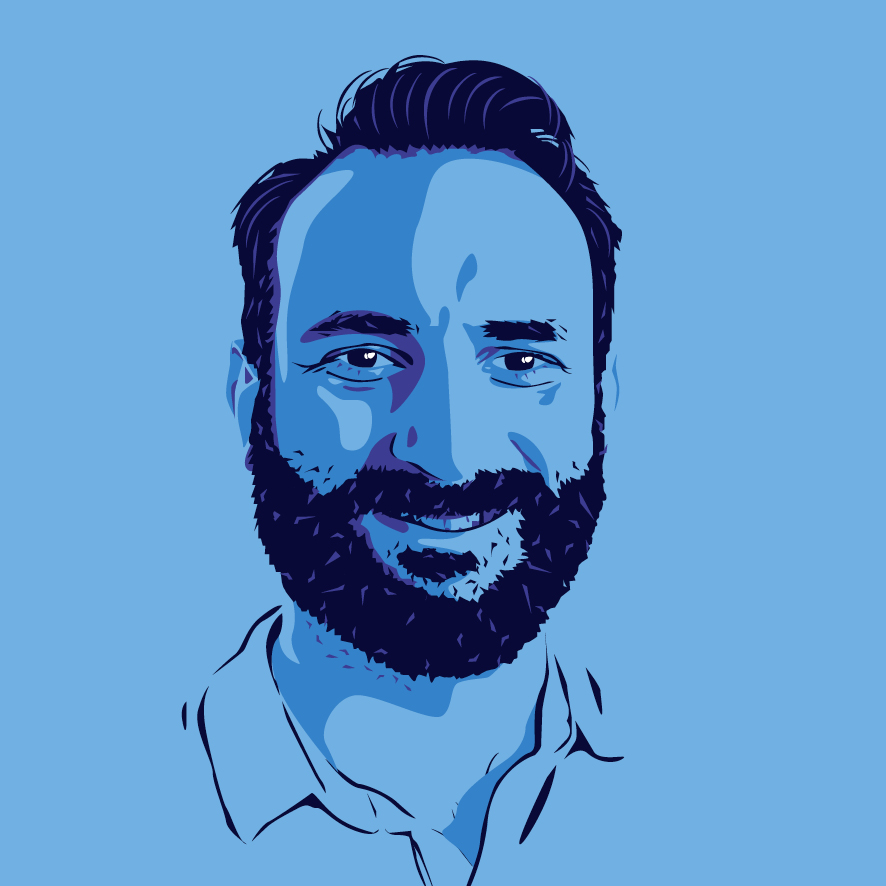One year ago today, Blizzard officially launched Overwatch. In the time since, the game has grown to be massively popular, boasting more than 30 million players and a burgeoning esports scene.
Overwatch is currently celebrating the anniversary in-game with a three-week commemorative event, featuring 11 new legendary skins, three new arena maps, a handful of balance changes, and a pile of other cosmetics. To mark the occasion, we chatted with game director Jeff Kaplan and principal director Geoff Goodman about the past, present, and future of Blizzard's mega-hit FPS.

PC Gamer: Congrats on the anniversary! If there's one thing from year one that you could do differently, what would it be?
Jeff Kaplan: We learned a lot about Competitive Play from our many iterations of the feature. Knowing what we know now, I think we could have had a more solid design for the mode straight out the gate and made the system more understandable for players from the beginning.
What are the chances of us seeing skins or stuff from other Blizzard games make its way into Overwatch?
We love the other Blizzard Universes and would love someday to pay homage to them. For our first year, we felt it was very important to establish the core Overwatch tone and vibe. Because we were creating a brand new universe with its own unique story and characters, we wanted to build a strong foundation for the game before straying too far. As Overwatch continues to become more firmly established as a Blizzard Universe, it opens the door for exploration, such as the awesome ideas you’ve suggested.
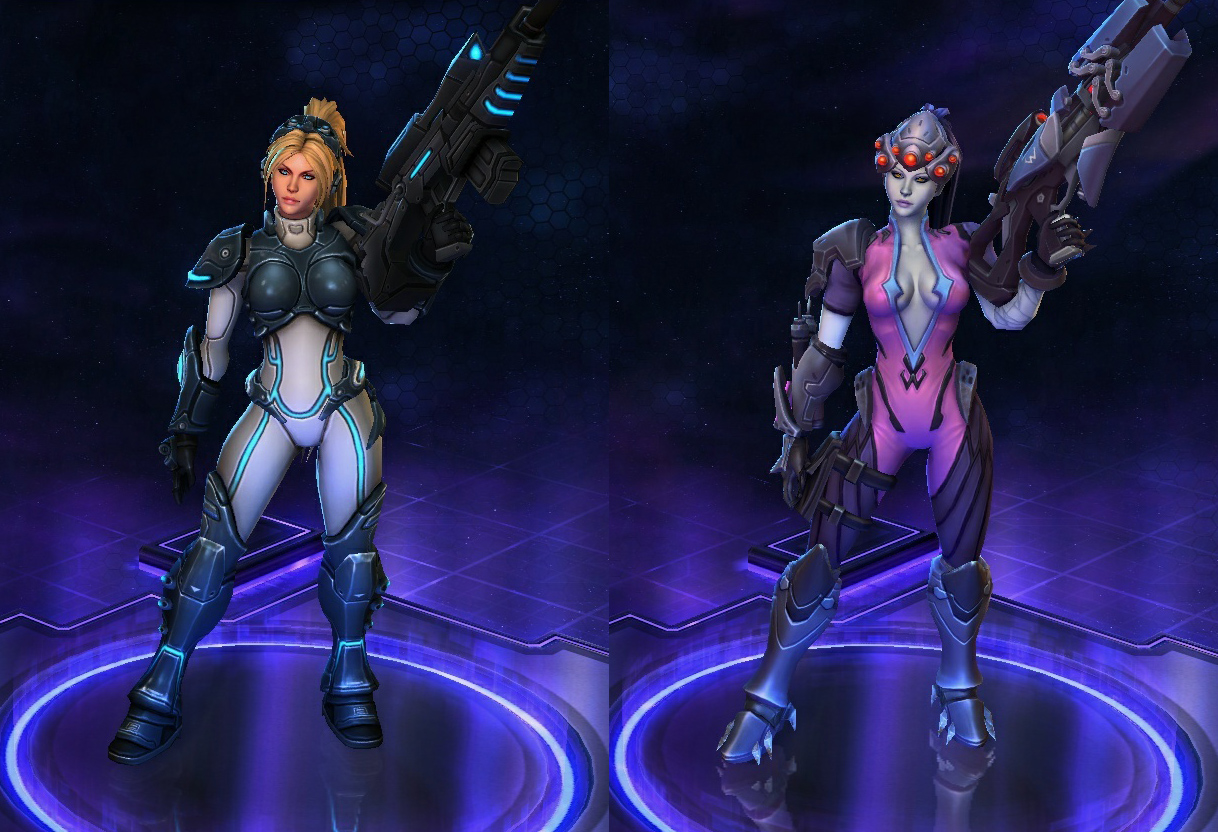
You've said the goal is to release three to four new heroes per year. How do you plan to keep releasing new heroes without retreading abilities and design we've already seen? Is there a number you have in mind where you'd say: "Okay, that's it, no more new heroes."
The biggest gaming news, reviews and hardware deals
Keep up to date with the most important stories and the best deals, as picked by the PC Gamer team.
We don’t have a specific number of heroes in mind for Overwatch. That said, we also can see slowing down adding additional heroes over time. Because the game embraces hero switching, our players need to be aware of every hero in the game in every match. This is quite different from the MOBA genre, which has embraced the concept of hero locking.
One of the things that makes Overwatch unique is how closely our players identify with our cast of heroes—they’ve fallen in love with their voice lines, animations, and backstories. We want to make sure every new hero we add compliments the existing cast and doesn’t detract in any way. And as you mentioned, we don’t want to homogenize our heroes by repeating abilities or variants of the same ability. We still have some amazing ideas for heroes that would have unique gameplay and backstories that would fit well within our game. But ultimately, when it comes to heroes, we prefer quality over quantity.
And finally, because I have to ask, what can you tell us about Doomfist?
Rumor has it he can level a skyscraper.
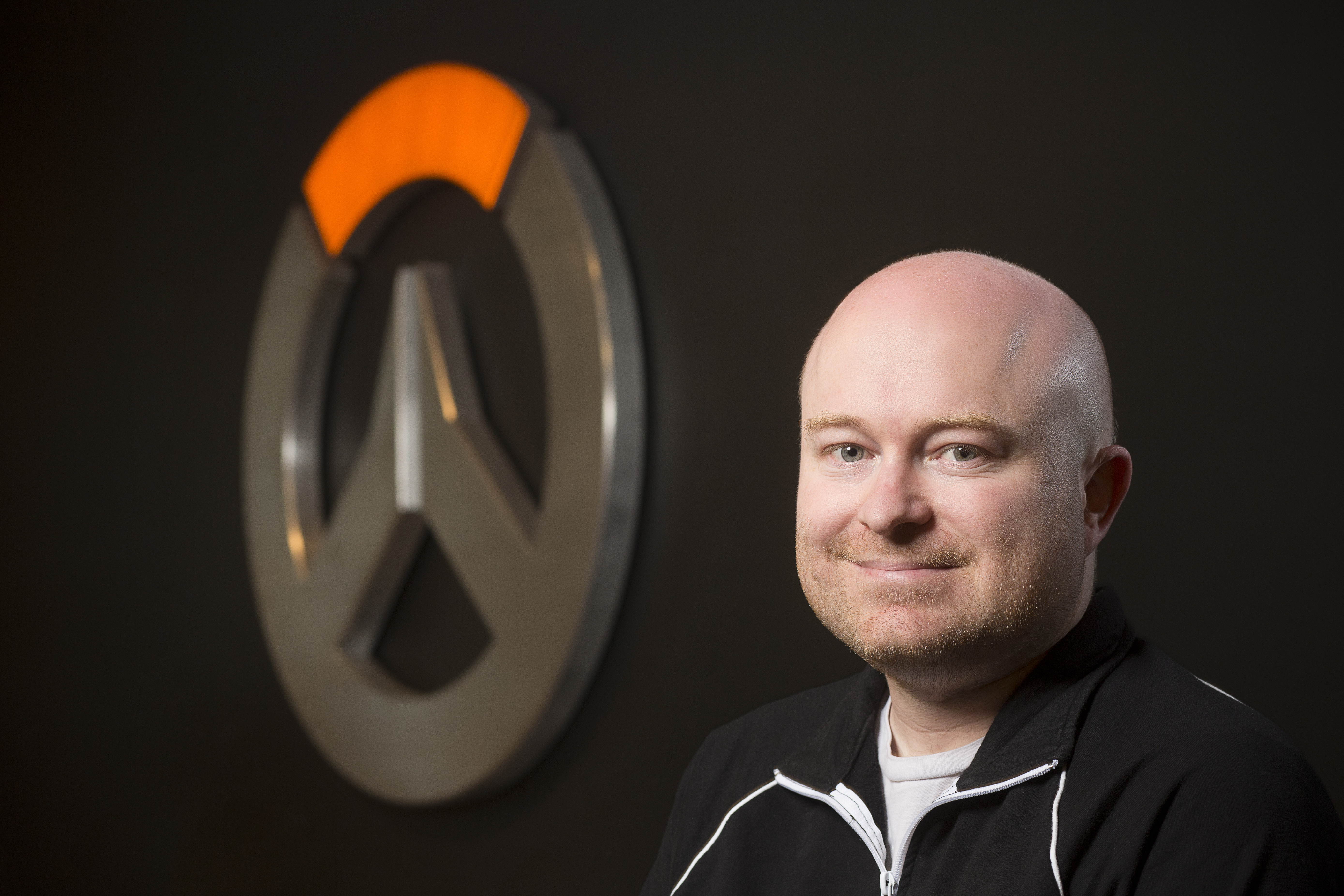
How would you describe the health of the Overwatch metagame?
Geoff Goodman: In general, the metagame is feeling really good right now. There are a lot of heroes being used effectively, and many different strategies that can all work. That said, there’s always room for improvement, so expect to see changes in the future to help out some under-utilized heroes.
When creating and balancing heroes, what skill level do you design for?
When both balancing and creating new heroes, we have to look at all skill levels and try to make them viable for everyone. That is easier said than done, though, and some heroes tend to be stronger in different skill brackets. In general, if a hero has to be focused in a particular skill bracket, it’s better to have that hero be weaker at low skill and stronger at high skill. There are a couple reasons for this:
1) If a player’s skill level is changing over time, it is more likely to be going up, not down. Because of that, if a player deems a hero to be weak at first they may come to appreciate and use them much more effectively over time as they get better. The inverse of this would be a situation where a player really likes playing a hero but feels forced to stop playing them over time as they get better and move to a higher skill tier.
2) Some players really enjoy the idea of mastering a hero that feels more difficult to play, such as Genji or Widowmaker. For these types of players, the fact that a hero can be harder to play effectively can actually work in their favor.
3) From an esports perspective, it’s always nice to see most of the roster have a chance to see play. If a hero feels weak at high levels, they are unlikely to be played even in niche strategies.
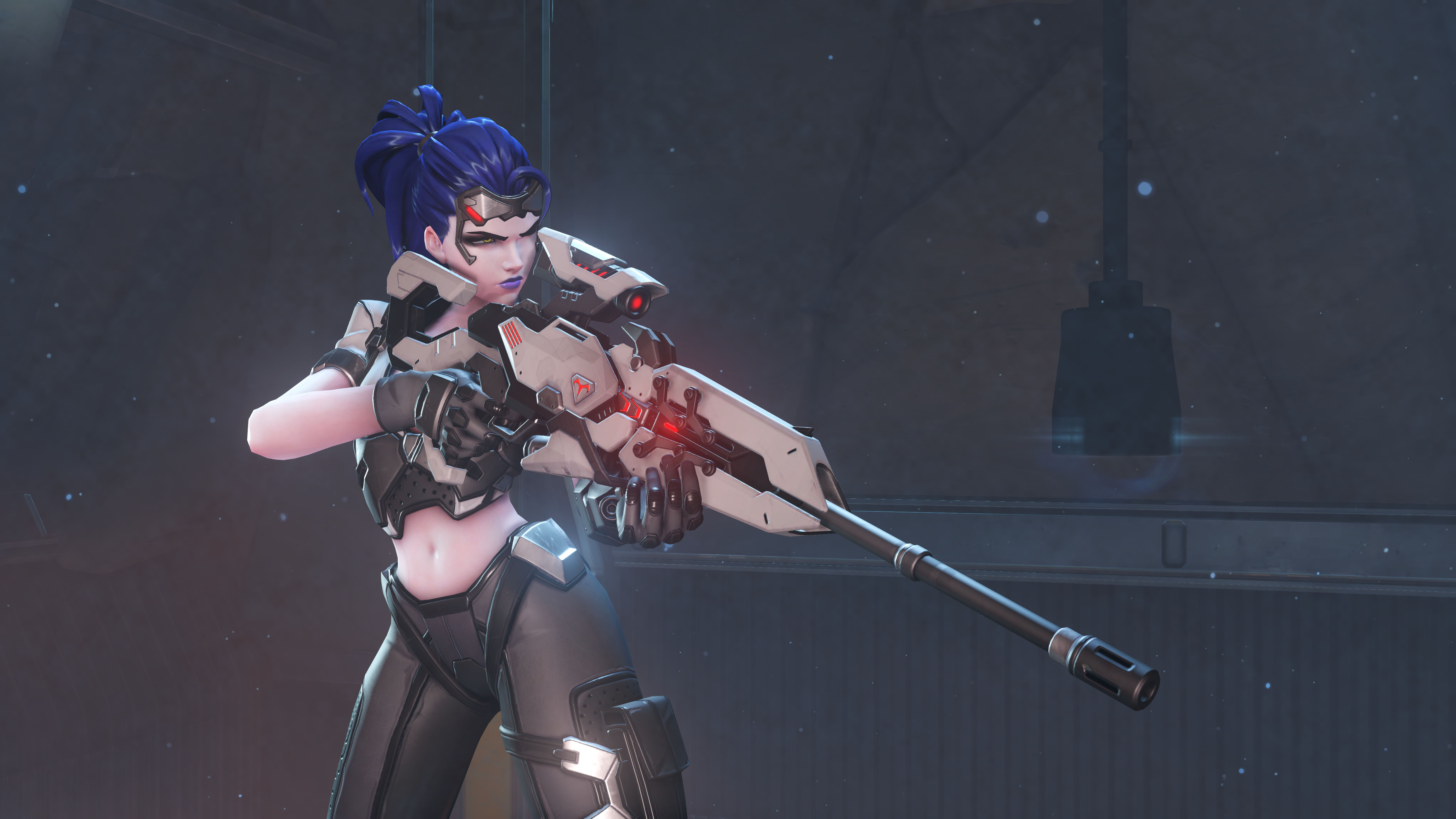
Building on that—do you think it's okay for there to be 'easy' heroes that are beginner-friendly but have a low ceiling, (and 'hard' heroes that are difficult to play but reward high skill) or should every hero be viable at every skill level?
Ideally, every hero has a high skill ceiling, which allows players to continue to improve with a hero the longer they play. Being beginner-friendly is more about having a low skill floor, where you can pick up a hero and be reasonably effective with them right away. The goal of every hero is to have a low skill floor and a high skill ceiling, but sometimes a hero design doesn’t lend itself to having a low skill floor. Widowmaker and McCree, for example, are all about being super accurate with each shot, which can be difficult for new players. In these cases the skill floor ends up a bit higher than we would like, but the high aim requirement is such a core part of these heroes that we believe it’s a necessary sacrifice.
Often players will directly relate how difficult it is to aim with a hero to how high their skill ceiling is. However, there are many ways to increase the skill ceiling far beyond pure aim skill. For example, when the game first launched, many players coming from other games thought of Winston as having a low skill ceiling because of how easy his gun is to aim. These days we’re often seeing pro teams put some of their best players on Winston because of how critical the role can be and how difficult it can be to play him at the highest level.
After some fairly dramatic PTR balance changes (the Symmetra and Lúcio reworks), the most recent PTR was very measured in its changes. Are there any other heroes you think are due for a large rework, or are they mostly at or near where you'd like them to be?
We’ll have to see. Nothing major planned as of right now but things change as we constantly evaluate the game. There are a few points that can frustrate players that would be nice to try to work out, such as Roadhog’s hook combo damage, but we don’t have any major reworks planned at the moment!
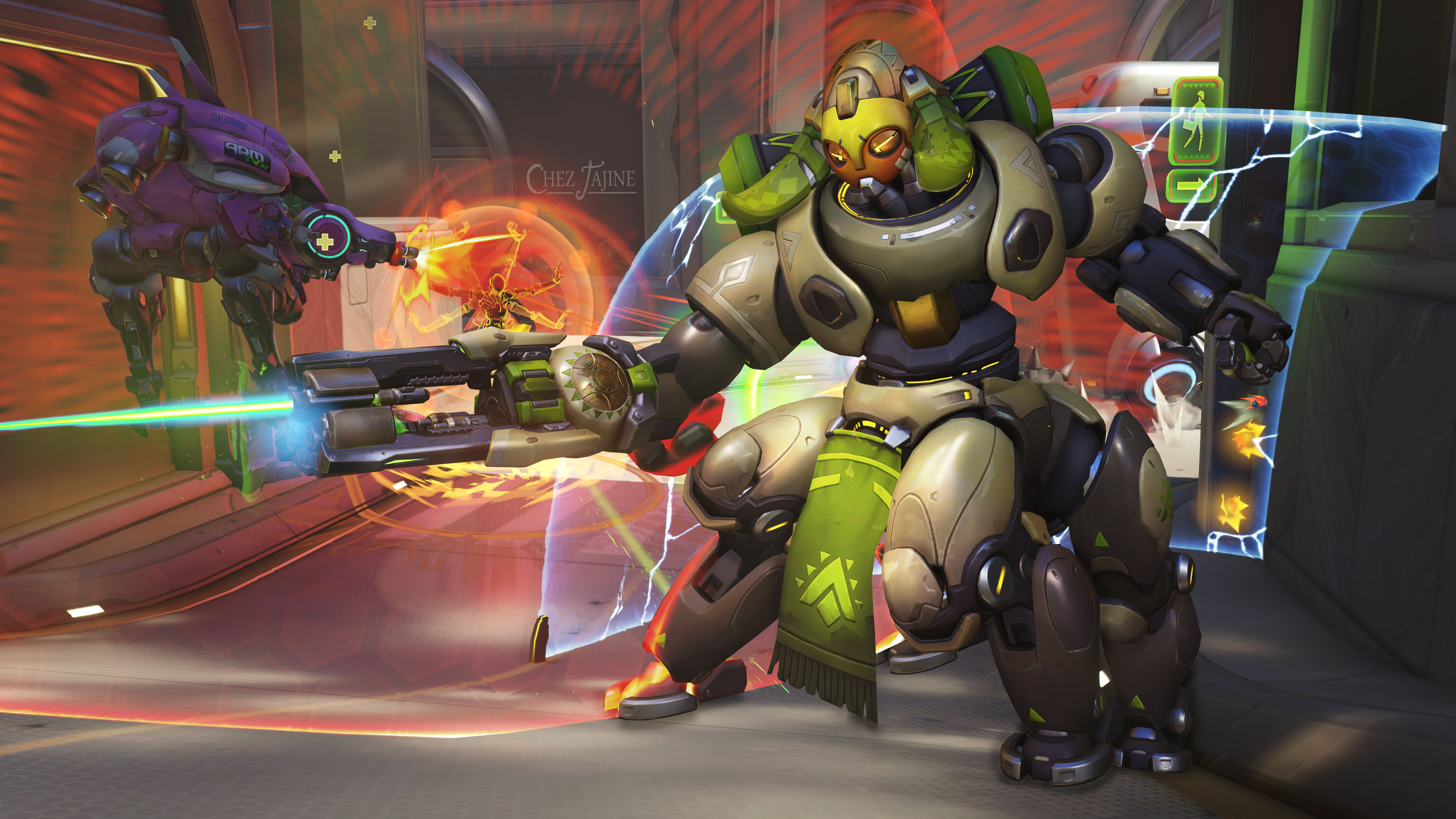
You've talked about how Orisa was designed to be another 'anchor tank' option, giving an alternative to Reinhardt. Now that she's been out for a few months, how do you feel she's filling this role?
Orisa has proven to be quite effective, but a lot of her current power is due to her damage output as opposed to her survivability and tanking for the team. We have some changes to her coming soon that will lower her damage a bit and significantly boost the uptime of her barrier. She should still dish out quite a bit of damage, but this shift in power will hopefully help her fulfill that tank role teams often need.
In an attempt to limit toxicity, Overwatch doesn't have an in-game scoreboard, but many say it has resulted in the opposite. Is this a decision you continue to think about and/or are considering revisiting in the future?
I think it’s unlikely that we’d revisit putting in a ranked scoreboard, though anything is possible. The main issue with a ranked scoreboard is there is so much you can do to help your team that is nearly impossible to measure, so it would never accurately reflect how useful you are to your team. For example, let’s say your team is tied up at a choke point and just can’t seem to get through. You decide to change to Tracer and get behind them. Standing on the point to pull the enemy back and making them chase you around could be the best way to open up the choke and let your team in, but it’s also extremely difficult to score something like that. Another simple example is how much score do you give Lucio for speed boosting the team? Sometimes hitting that amped-up speed boost can completely define a team fight but it would be very hard to accurately give score credit for something like that.
As we approach the Overwatch World Cup, what work is the Overwatch team focused on to make the game an even better spectating experience?
We have a ton of plans to help make spectating the best we can make it, and it’s really just a matter of finding the time to get everything in that we would like. One big problem we’ve been trying to tackle internally is the issue of team coloring. Right now when you watch the game, you’re either watching the red team or the blue team, and the camera can swap quickly between players of different teams. Oftentimes, this makes it very difficult to quickly determine who is an enemy and who is an ally of the player that is being spectated. This is even further complicated by the fact that when someone is playing the game themselves, the enemy is always red, and your team is always blue. So when you’re watching a player on the red team run around with red allies, it can be very confusing.
We’re very actively trying to solve this problem, and we have a number of different options we’re experimenting with internally. Hopefully, if all goes well, our changes will dramatically improve the viewing experience. There are many other large features we’d love to get in as well and we’ve been actively getting feedback from the community and casters to make it the best spectating experience possible.
What can we expect from the future of Overwatch PvE?
We have a ton of fun making PvE content, and the player response has been overwhelmingly positive for the events we’ve done so far. We’d love to keep making this kind of content as long as players love to play it!
Overwatch's cast covers a lot of different hero archetypes—are there any abilities or mechanics that Overwatch hasn't touched on yet that you'd like to explore?
To be honest, I feel like we have barely scratched the surface of fun things to try for playable characters. I have a giant list of cool ideas to try out, from full hero ideas to specific mechanics to experiment with. Pharah was one of our first heroes, but I remember when we implemented her I was immediately thinking of a hero that flies 100% of the time and never needs to touch the ground—that might be interesting to try some day. We’ve had a few experiments where we had abilities or guns that could pierce walls…what if a hero could just blast a hole through a wall? Or somehow create objects for players to run on or stand on? The possibilities are endless!
As the former head of PC Gamer's hardware coverage, Bo was in charge of helping readers better understand and use PC hardware. He also headed up the buying guides, picking the best peripherals and components to spend your hard-earned money on. He can usually be found playing Overwatch, Apex Legends, or more likely, with his cats. He is now IGN's resident tech editor and PC hardware expert.
